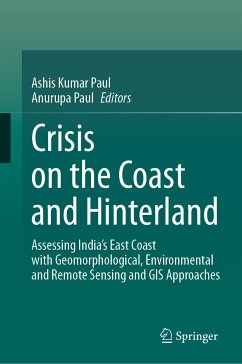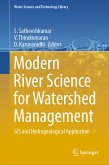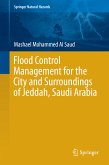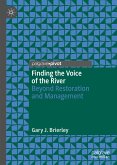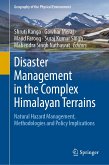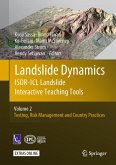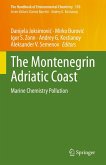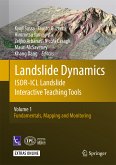This contributed volume assesses the state and future of India's East Coast through a wide variety of chapters grouped by methodology and approach. Part I: Assessment through Geomorphological Approaches describes geomorphological diversities of the eastern shorelines of India, Coastal Modelling System- SMC and morphodynamics of Odisha coast, Paleo shorelines and beach ridge chenier formations of Subarnarekha delta, seasonal sediment budget of Chandrabhaga beachdune system, Beach stage and dune stage modelling Mandarmoni coast, drainage characters of South Andaman Islands, coastal foredune morphology and sediment of Odisha and West Bengal, Geo-archaeological pieces of evidence of ancient coastal environment, coastal sediment characters, beach ridge formation in the chenier coast, and geomorphological changes of ancient ports and harbours in the shoreline of West Bengal.
Part II: Assessment through Environmental Approaches addressesvarious environmental assessment techniques of mangrove sensitivity to the sea level rise process in the Sundarban, land degradation of the hinterland drainage basins, the riparian environment of the coastal drainage basins, agricultural adaptability in response to climate variability in the coastal areas of West Bengal, forest degradations of the lateritic upland tracts, coastal tourism potentialities in Odisha and West Bengal, Climate variabilities and agricultural modifications in the hinterland areas of West Bengal districts, the tidal flat environment of Sagar Island, landforms and Geomorphosites for the promotion of Geotourism in South Andaman Perils of Premature Reclamation of Sundarban, marine litter in the coastal regions of West Bengal and Odisha on flora, fauna and humans, Ground water contamination due to saline water encroachment in coastal Andhra Pradesh and Spatio-temporal changes in the Hugli estuarine environment and coastal hazards and flood riskof southwestern Sundarban.
Part III: Assessment through Remote Sensing & GIS Approaches uses the aforementioned techniques in service of exploration of monitoring health of Mangrove forest, Geomorphological analysis of the coral fringed coasts of Andaman, hydrological and morphological variations of Ichhamati Tidal estuary, multivariate analysis of coastal vulnerabilities, geography of tourism resources in Andaman group of islands, tourism climate index with application geospatial techniques, diversity of landscape ecology in the coastal blocks of Purba Medinipur, overwash vulnerability in Odisha coast, livelihood security index of the coastal communities, managing coastal squeeze response and wetland loss in the estuarine coastal tract of West Bengal, environmental effects of historical land reclamation process in the Sundarban, and emerging environmental problems of coastal urbanization in Digha, Kanthi, and Haldia.
Dieser Download kann aus rechtlichen Gründen nur mit Rechnungsadresse in A, B, BG, CY, CZ, D, DK, EW, E, FIN, F, GR, HR, H, IRL, I, LT, L, LR, M, NL, PL, P, R, S, SLO, SK ausgeliefert werden.

